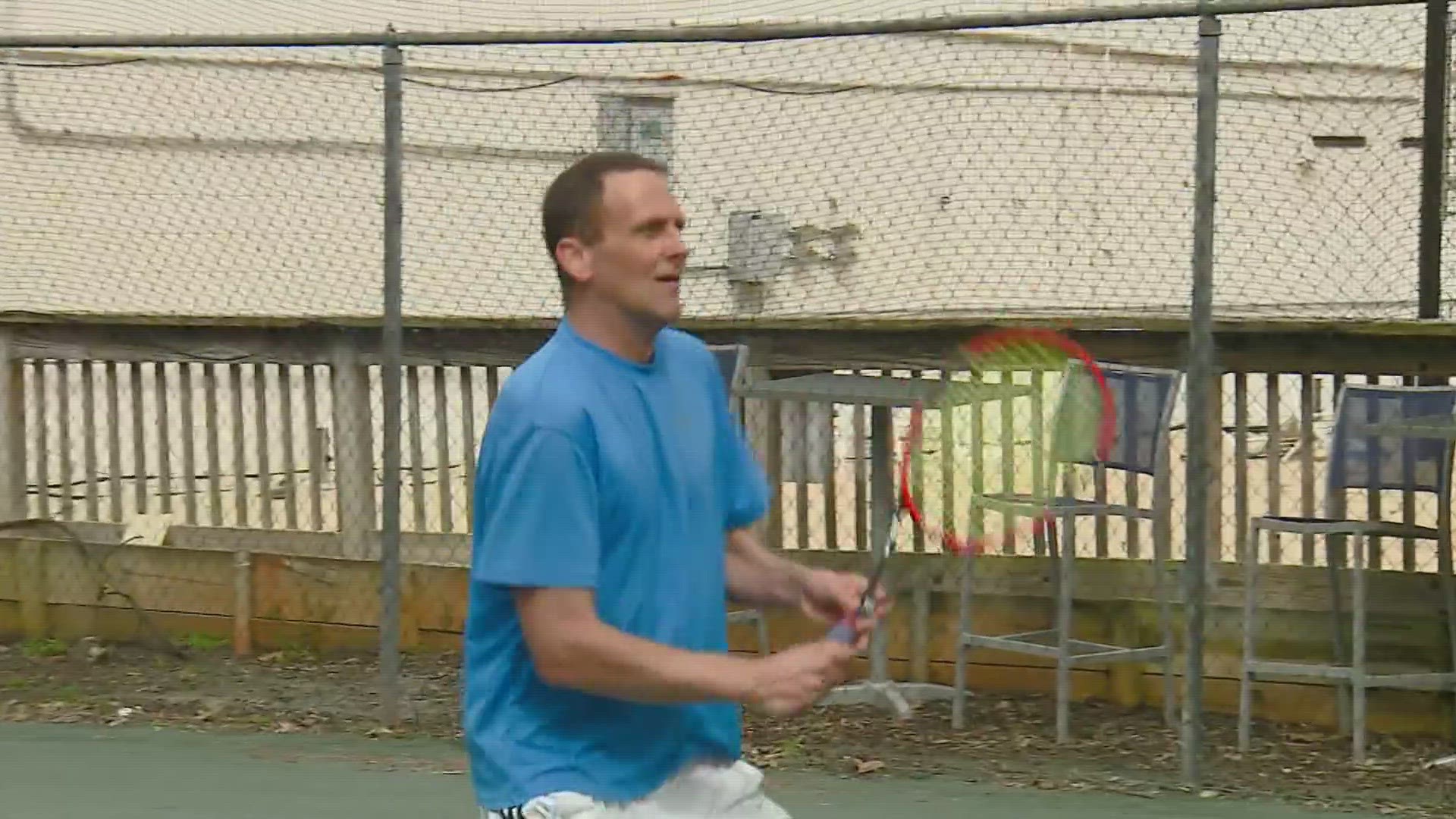GREENSBORO, N.C. — March is Colorectal Cancer Awareness Month. According to the National Institutes of Health, over 100,000 people were diagnosed with the disease in 2023.
Quick link: Colon cancer information from Cone Health
WFMY News 2 spoke with a Greensboro man whose message to others is to always listen to your body.
41-year-old Rob Campbell has been playing tennis his whole life. His father introduced him to the sport.
"I played all through college," Campbell said.
He enjoys playing at Pinetop Sport Club in Greensboro, but his game slowed down after he experienced symptoms of colon cancer in January of 2023.
Quick links:
"I started feeling a little tight and full and not having normal bowel movements, and in the course of three or four days, I went from that to not being able to eat anything else without throwing it up," Campbell explained.
So he went to the hospital to get screened.
"They told me it was probably cancerous, and they needed to do surgery immediately," Campbell said.
With no family history, Campbell was shocked by the words coming from his oncologist's mouth, especially because of his age.
"They said I had spots on my liver, so that was stage 4 colon cancer," Campbell said.
"Usually, the major range age group where colon cancer involved, male or female, are between ages 50 to 70, but with that being said, we do have patients in our clinic much older than that stated age, even some that are much younger," DeQuincy Lewis, MD, with Cone Health Cancer Center at Asheboro, said.
Lewis said it is recommended that people get screened for colon cancer at age 45. But if you're younger and start feeling symptoms like diarrhea or rectal bleeding, seek help immediately.
"The first thing you should say is, 'I need to get this evaluated so I can figure out what is going on,'" Lewis said.
After Campell was diagnosed with stage 4 cancer, he went into surgery and chemotherapy.
"They removed a section of the colon that had a large tumor in it that was blocking the colon and then in June liver surgery," Campbell said.
The surgery kept him off the tennis court for weeks.
"I didn't have the core strength to swing a racket," Campbell said.
He missed out on playing the game he loves with his tennis mates.
"It was shocking. I think everybody, the tennis community is pretty small, like any group, and so it spread pretty quickly, and everybody was devastated by the news," Pinetop Tennis Director David Leatherwood said.
Leatherwood plays with Campell often and supports Campbell through his diagnosis.
Now, a year later a miracle no sign of cancer. Campbell is back swinging his racket frequently.
"I'll be out here many years to come, hopefully," Campbell said.
For others facing a similar diagnosis, he offers some advice.
"Don't be discouraged, there are constantly treatments evolving, new chemotherapy, new drugs that can help," Campbell said.
He also said to always listen to your body.

